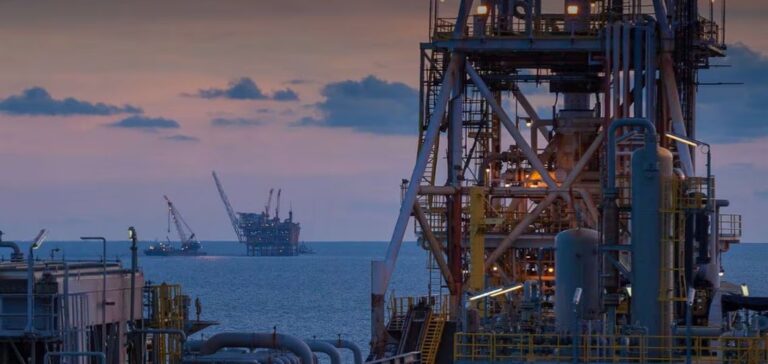The Poseidon project takes a major step forward with the first CO₂ injection test into an old gas reservoir in the British North Sea. Led by Perenco UK in collaboration with Carbon Catalyst Ltd and Harbour Energy, this test aims to validate the feasibility of long-term geological CO₂ storage. It is part of a broader effort to develop carbon capture and storage (CCS) technologies.
A Strategic Test for Geological Storage
The injection operation, carried out from Petrodec’s ERDA platform, represents a major technical milestone. This facility is the first in the UK to have received safety certification to support CO₂ injection operations. Preparatory work included the rehabilitation of an old gas well and the installation of infrastructure suitable for this new use.
The test will provide critical data on how CO₂ behaves once injected into a depleted reservoir. This information is essential to assess the site’s absorption capacity and long-term stability, which are fundamental for large-scale industrial operation.
A Potential Injection of 40 Mtpa
If the results are successful, the Poseidon project could enter an operational phase with an initial injection capacity of 1.5 million tonnes per year (Mtpa), with a gradual ramp-up to 40 Mtpa by 2029. This progression aligns with a regulatory framework supported by the UK government, which recently announced £22 billion in funding for CCS development.
The project is part of a broader strategy to leverage the expertise of the oil and gas industry to optimize existing infrastructure and foster new CO₂ management applications. The outcome of this test will provide valuable insight into the next steps for developing geological storage in the North Sea.
##






















